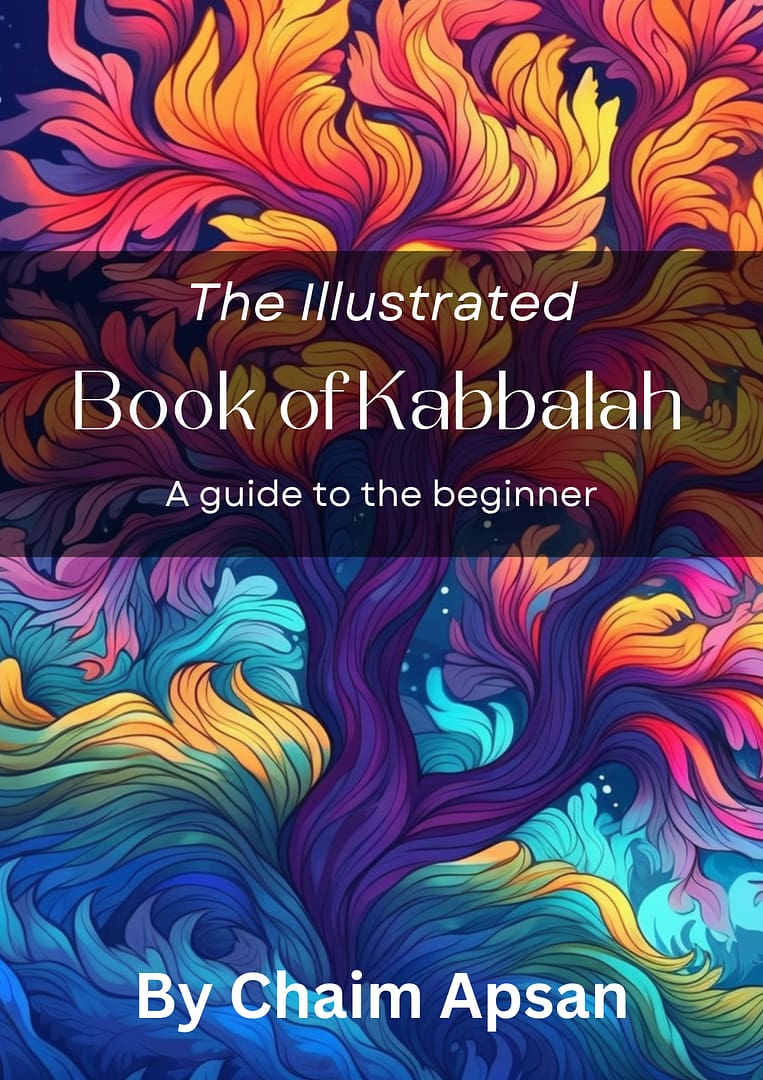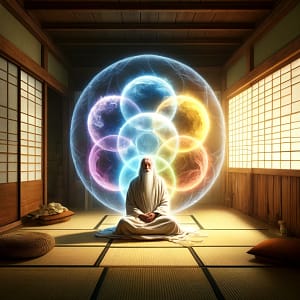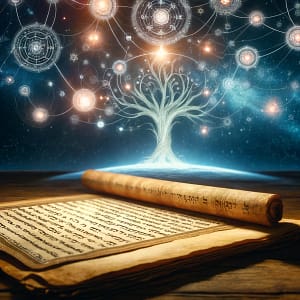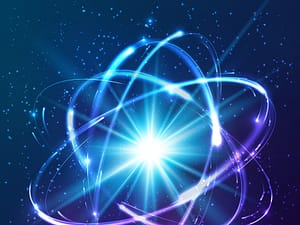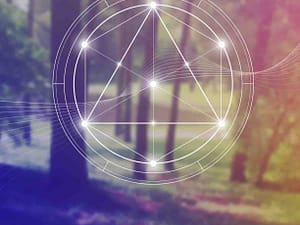A key component of how to evaluate Avodat Hashem is how much of our souls we apply to it. However, how do you measure it?
It’s not an answerable question, but we can get an idea of the factors surrounding it.
Everyone knows the paradigm story of the super frum Jew who goes through an entire religious life, not knowing that he never really did a single Mitzvah properly. Sure, he goes through the motions, knows all the prayers by heart, and follows the Shulchan Aruch perfectly.
Outwardly, he’s the model of the perfect Jew.
Inwardly, he is supposedly incredibly frustrated, sad, jealous, and angry.
None of his Mitzvot were ever done with joy or concentration. In other words, dead. I still believe this person will have a great Olam HaBah (contrary to what many people might argue), but he will probably be lacking a lot since a great part of Avodat Hashem is the Tikkun HaMiddot.
So, what distinguishes a Mitzvah that will grant him power from one from which he was simply “yotzeh”?
And, on that same vein, why is it that our sages teach that many Mitzvot have great Segulot, but few people can experience these wondrous effects?
And, of course, how to achieve all that in Avodat Hashem?
Let’s explore these issues in-depth.

The power of the soul
I get the impression many people believe that the soul is a uni-dimensional, ethereal, nebulous thing that can never be experienced unless you reach a tremendous level like Yosef HaTzadik.
Well, at least I used to believe that.
So many times in my life I heard the adage “You don’t need to feel anything, just do the Mitzvot purely L’Shem Shamayim. That’s real Avodat Hashem!”. This warped philosophy plagues our communities and unfortunately was too difficult for me to get rid of. The reasoning is that, if you want to “feel the bliss” of being close to Hashem, then perforce you are doing it for ulterior motives and your Mitzvah is almost worthless.
Back when I was in Yeshiva in Bnei Brak, I posed this question to one colleague and friend: “Is there any problem in a person ‘feeling’ [i.e. the bliss of] Hashem?”.
I tried to explain my intention, but before he even answered, I already knew it was a ridiculous question.
“Why would it be bad?” – he asked.
“Well, when you experience bliss, you are not really doing it L’Shem Shamayim, right?”
I don’t really remember what he told me but it was something along the lines of:
“On the contrary, if you really experience the joy and power of a Mitzvah (as one should), then you will be inspired and strengthened to do more Mitzvot, and even better. I don’t see how that would be bad”.
Then, as I started to study the Kitvei Ari, I began to understand that it is possible for the average guy to get “Hasagot” (visions) and reach a state of bliss in Avodat Hashem. Rabbi Chaim Vital, the primary disciple of the Holy Arizal was always on the lookout to feel closeness to Hashem, to receive revelations, to acquire more wisdom (chokhmah). He wanted deeply to see how to experience it, not just perform Mitzvot or study in a perfunctory way, sometimes even trying to get shortcuts for it.
This was incredibly eye-opening for my Avodat Hashem.
You are supposed to be in a state of bliss when doing studying, performing Mitzvot and praying.
During my Teshuva journey, I’ve been hearing that it’s precisely when you really don’t want and sometimes even “reject” studying or doing Mitzvot that it’s the most valuable. While there is merit in going against your nature, I don’t think this is an ironclad rule.
Evidently, we should always keep a sense of duty and one should not pursue Torah and Mitzvot to “get high. My point here is that by training our minds we can reach a conscious level of powerful experience, which I believe few people can get to.
There’s a technique for that which involves meditation and this is something I teach in 1 on 1 sessions (see the shop)..
People who understand what I’m talking about will know it’s not just for the fun of it. Getting an experience of Hashem itself can be incredibly energizing and powerful. It can be a punch to the Yetzer HaRah, and it can bring you closer to Him than ever before.
It’s worth adding it to one’s Avodat Hashem.
Anatomy of the souls
Before we go on, let’s reiterate the most important principle that “soul is consciousness“. The way you perceive the world is essentially how your soul is feeling and the level you are at.
We all have 5 levels of the soul which, in ascending order are: Nefesh, Ruach, Neshama, Chaya and Yechidah. The first 3 reside inside the body while the other 2 are Makkifim (surrounding), giving life to the lower levels. So the Chaya illuminates the Neshama from outside, while the Yechida illuminates the Chaya and so on.
As a person progresses, the Chaya’s light (i.e. divine consciousness) is internalized into the Neshama, the light of the Neshama becomes part of the Ruach and the light of the Ruach becomes the Nefesh.
Now, if this isn’t complicated enough, each of these 5 parts is also divided into another 5 parts. So we can have Nefesh of Nefesh, Ruach of Nefesh, Neshama of Nefesh, Chaya of Nefesh, Yechidah of Nefesh. Then Nefesh of Ruach, Ruach of Ruach and so on. 5 x 5 = 25 general parts in total.
A person’s regular state of consciousness is without a doubt the Nefesh.
This is how most people perceive the world. Even then, it’s only when we are genuinely engaged in holy things that we perceive the Nefesh HaSichlit (the holy [intellectual] Nefesh), and not the Nefesh HaYesodit (see Shaarei Kedusha).
Rav Shimon Agassi, in his commentary to Shaar HaGilgulim explains that it’s very difficult for the average person to completely rectify the [general] Nefesh and receive the Ruach. The reason is because the Nefesh is very coarse and needs a lot of work. Once a person does it, however, rectifying the Ruach and the Neshama is relatively easy.
Still, it seems to me that it’s possible to rectify the Nefesh of Nefesh and receive the Ruach of Nefesh.

While it can take a lifetime to fix the Nefesh entirely, there are times when we can meditate and call upon the Ruach to shine through. This is not a full revelation but is associated with the bliss that one can experience. The intervention of the Ruach in itself can be an awesome experience and can greatly help the Nefesh be rectified.
Remember: it’s mostly the Nefesh that needs real rectification.
Yichudim for Avodat Hashem
Yichudim have many uses and the Kitvei Ari is full of them. They are very efficient forms of meditation that can cause incredible effects on all levels of the soul. There are many uses for Yichudim such as healing, bringing Yirat Shamayim, rectifying Middot, freeing blockages, acquiring wisdom, opening the gates of parnassa (that’s the Yichud on the Passuk “Poteach Et Yadecha”) and so on.
Yichudim can be likened a shortcut, a downpour of light to the soul, which can have an incredible, lasting effect. They are an integral part of Avodat Hashem which, according to the Arizal, stands even above Limud Torah, as we see from the following quote from Shaar Ruach HaKodesh:
ואל תאמר שעסק התורה גדול ואין ראוי לבטלו, כי ענין היחודים הנז׳ הוא גדול מעסק התורה, כי הוא מייתד העולמות העליונים ונקרא עסק התורה ויחוד והכל הוא ביחד
Translation: And if you will say that the study of Torah is greater and it’s not appropriate to “annul it”, the subject of Yichudim mentioned before is ABOVE TORAH STUDY, BECAUSE IT UNIFIES THE HIGHER SPIRITUAL WORLDS AND IS CALLED TORAH STUDY AND YICHUD TOGETHER.
This shows a little bit of the tremendously important work of performing Yichudim.
The Komarna Rebbe, in his commentary to the Introduction of the Zohar, as well as many other Tzadikim also teach the same in their writings.
In order to understand the heights of Avodat Hashem, we can look into how Tzadikim engage in it.
If you pay attention to them, you will notice not a single moment is wasted. They are either studying, praying, doing Yichudim, guiding people, doing chessed and so on. They minimize sleep, food, drink, pleasure, and speaking trivial things.
Every waking (and sometimes even sleeping) moment, there’s Avodat Hashem.
I remember reading a story that Rav Chaim Kanievsky asked his son or grandson what he had eaten because he was so busy studying while eating that he didn’t know what to bless afterward. Or when Rav Berland’s car flipped in the middle of the road and they found him upside down studying as if nothing happened. This is true Dvekut on a very visceral level.
Who could say what forms of Yichudim go on on in their heads while these things happen?
While this level is far-fetched for most people I believe each person can achieve a similar, relative result in his own level, with due training. Again, Yichudim enables one to do rectifications and gain holy mindfulness (da’at) anywhere and anytime. Whenever one finds himself walking the street, eating or even before going to sleep, you can do Yichudim.
A word of advice though: A man needs to be clean of Keri. That means if one had Keri for whatever reason, he should not perform Yichudim until immersing in the Mikvah. Clearly, you should not do Yichudim while in the bathroom or whenever indecent sights are around.
Be aware that one should’ve already reached a moderate level of Avodat Hashem to start performing Yichudim. That means not engaging in big averot like chillul Shabbat or not guarding the Brit.
Full commitment to the Torah and Mitzvot should be basic conditions for this elevated form of Avodat Hashem. Yichudim should not be taken lightly.
I post some of the easier Yichudim here:




Those that can understand will benefit a lot from it.
One can do them anytime he has to wait, or walk, or even when he’s working. Sure, keeping them in one’s consciousness all the time is difficult, but I don’t think this is the goal.
As a person moves on to performing Yichudim, he will naturally rectify his Middot and bring about the desired effects. Merely keeping them in mind whenever possible is already great.
Meditating for a few minutes is awesome. This is a work of a lifetime and one’s Avodat Hashem only stands to gain.
Consider the following quote
I don’t want to sound presumptuous or pompous here, but remember that this is a great responsibility. The people who can do Yichudim should do them as much as possible. I also copy and paste here an incredibly valuable piece from Shaarei Kedusha, Part 4 (the censored) chapter 3:

Translation: And witness! Once an individual proves themselves deserving of unlocking the secret of deveikut [i.e. the bonding with Hashem through Yichudim], they may merit the secret of hishtavut [i.e. stoicism and not caring about the world]. When this equilibrium (stoicism) is attained, the path is paved for one to be deemed deserving of the secret of Hitbodedut [i.e. a deep and focused meditation]. As one merits the secret of Hitbodedut, he may be worthy of receiving Ruach HaKodesh [i.e. Divine inspiration], and only then does the possibility of attaining prophecy emerges and he can start speaking the future.
May we all merit these wondrous levels in Avodat Hashem!

